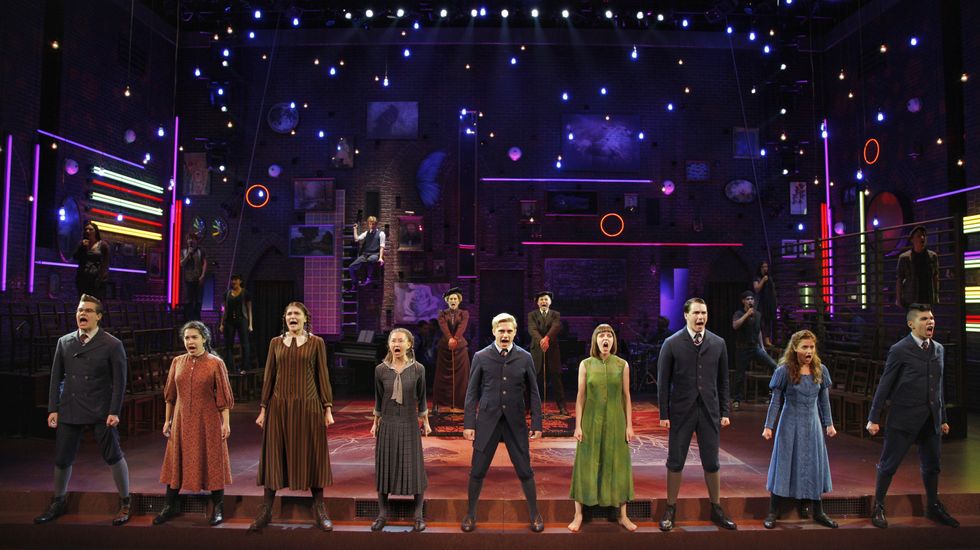Wake Forest University’s production of Steven Sater’s deliciously dark musical Spring Awakening perfectly encapsulated the confusion and desire intertwined within adolescent promiscuity. The show takes place in 19th century Germany telling the story of complex teenagers discovering the inner and outer tumult of teenage sexuality. The best part about this show is its utilization of alternative rock to encapsulate the lustfully frustrating emotions related to discovering sexuality.
The actor who played the lead of Melchior Gabor immersed himself into the rebellious, yet the sincere leader of this sexual revolution. He was fearless, sweet, and extremely talented with his vocals. He genuinely made you care about his character, particularly in his performance of “Left Behind” where he mourns the loss of his misguided and abused best friend Moritz Stiefel who has just committed suicide.
Moritz is one of the greatest symbols for injustice and oppression in the musical because he has been constantly criticized and punished by his parents and administrators for having difficulties learning and wanting to explore ideas outside of the textbooks. His self-inflicted demise is particularly tragic because it exemplifies the severely damaging effects an unjust society can have on such impressionable youth.
The lead actress of Wendla Bergmann also did a terrific job of representing her character’s innocence, longing, and hidden lustfulness. She does not know anything about physical attraction, and watching her character’s arc to embrace her sexual allures and succumb to her desire for Melchior was exciting and realistic.
Her performance of “The Guilty Ones” was extraordinary and showcased her soothing and seductive voice in a way that expressed her character’s newly discovered pride in allowing herself to love. Unfortunately, Wendla was also an example of the production’s unmerciful expectations in their society when she gets pregnant, and is subsequently murdered due to her parents forcing her into a botched abortion.
A particular highlight from more minor characters came from the actresses playing Martha and Ilse who were both victims of sexual assault inflicted by their loved ones. The recount of their suffering and highlighting of their sheer strength comes from their powerful ballad “The Dark I Know Well.” With the limited time they had, they had the entire audience immersed in their pain and amazed by their ability to stay resilient.
Overall, the play did a magnificent job of incorporating modern music and upbeat rock songs, to showcase the transcendent themes that teenagers experienced one hundred and fifty years ago and continue to struggle with today. Bravo to everyone involved in the recreation of this all too relatable production!








































